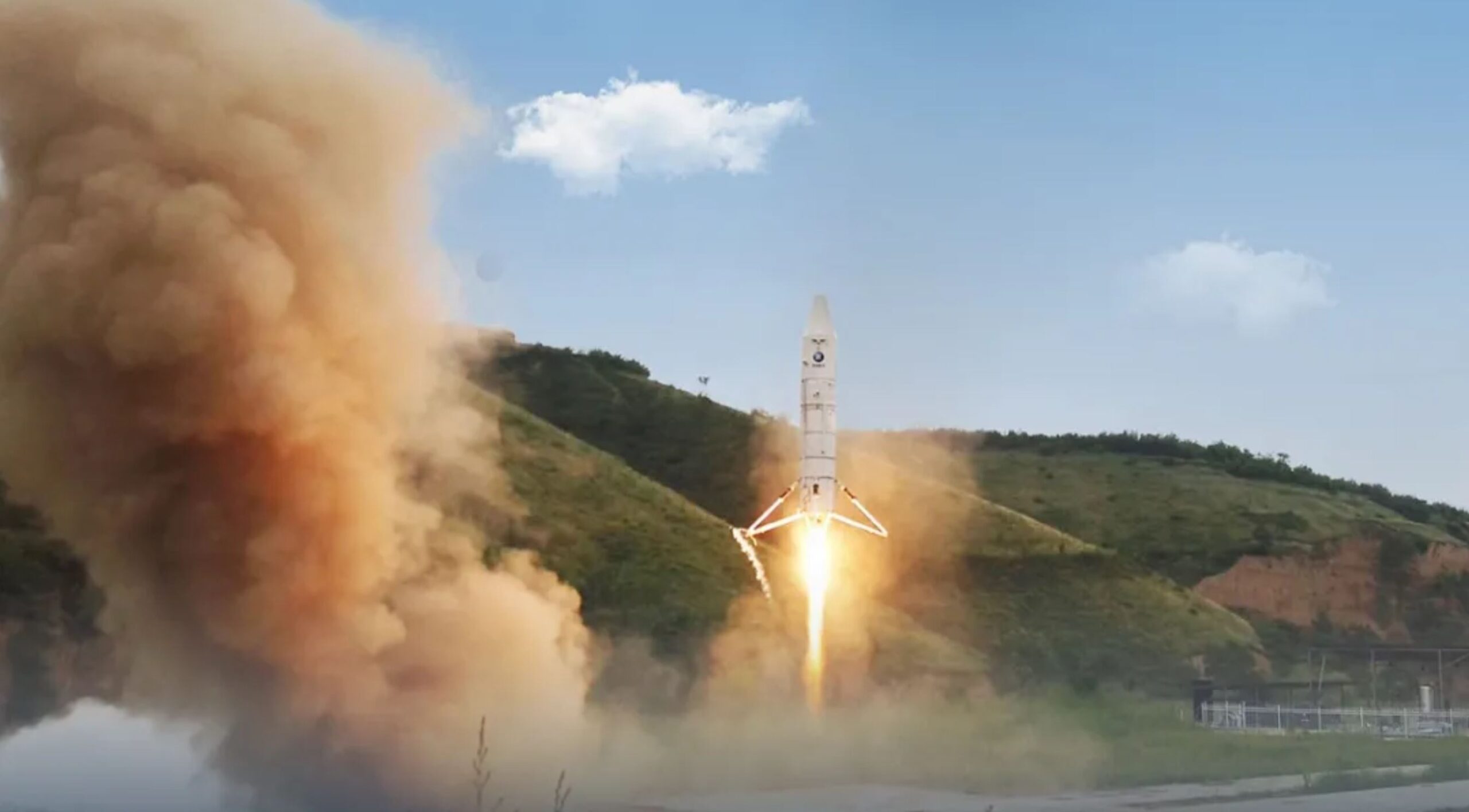HELSINKI — A Chinese private launch company carried out a first low-altitude vertical takeoff, vertical land test late July.
Deep Blue Aerospace fired up the Nebula-M VTVL test stage at a facility at Tongchuan, Shaanxi Province, reaching a height of almost 10 meters before briefly hovering and landing safely, the company announced Aug. 2.
The 7.3-meter-high Nebula-M used a variable thrust Leiting-5 (Thunder 5) kerosene-liquid oxygen, electric-pump-fed engine. The test was part of the development of the 2.25-meter-diameter Nebula-1 orbital launcher, which is to be capable of lifting 500 kilograms to 500 km Sun-synchronous orbit.
Deep Blue Aerospace described the test as a “grasshopper jump,” referencing SpaceX’s Grasshopper experimental flights as part of Falcon 9 development. It followed a 10-second static fire test of the “Nebula-M” technology verification test vehicle July 13, with two subsequent 60-second hot fire tests later in the month.
The next step is a 100-meter-level test and assembly of the Nebula-M2 test stage. Testing of the launcher’s Leiting-20, 20-ton-thrust kerolox engine is expected to be completed in 2021.
Beijing Deep Blue Aerospace Technology Co., Ltd., was established in 2017 and is headquartered in Nantong City near the mouth of the Yangtze River.
The firm is one of a number of Chinese private launch companies which have emerged since China’s central government opened up the sector in late 2014. It is one of a number of entities developing rockets with reusable first stages.
Space Pioneer and iSpace are preparing their own hop tests using the Tansuo-1 and a Hyperbola-2 first stage test vehicles respectively. Landspace is meanwhile planning to upgrade its Zhuque-2 methalox orbital launcher for reusability following its first launch.
Galactic Energy, which is gearing up for new launches of its Ceres-1 solid rocket, are also developing a VTVL-capable liquid rocket, Pallas-1.
Linkspace conducted a launch and landing test in August 2019, reaching an altitude of 300 meters using ethanol and liquid oxygen propellant engines. However the company has since been largely silent.
Huo Liang, founder of Deep Blue Aerospace, started out with the China Aerospace Science and Industry Corp. (CASIC). He joined OneSpace, one of the first Chinese private launch companies and a solid rocket maker, before starting his own enterprise.
The country’s main space contractor, the China Aerospace Science and Technology Corp. (CASC), is also exploring reusability with its Long March 8 derived from existing Long March rockets.
A June presentation from a senior space industry figure indicated that the super-heavy-lift Long March 9 would eventually be made reusable, featuring new designs and new engines.
China’s space efforts date back to the 1950s and the country has since developed an advanced state-owned space industry. It has recently launched major commercial, national defense, exploration and human spaceflight missions, including lunar and Mars landings and initiated construction of a low Earth orbit space station.
The 2014 decision to open up launch, small satellite and other sectors of the space industry to private capital is seen as a reaction to developments in the U.S. and the emergence of highly innovative and much more agile companies.
